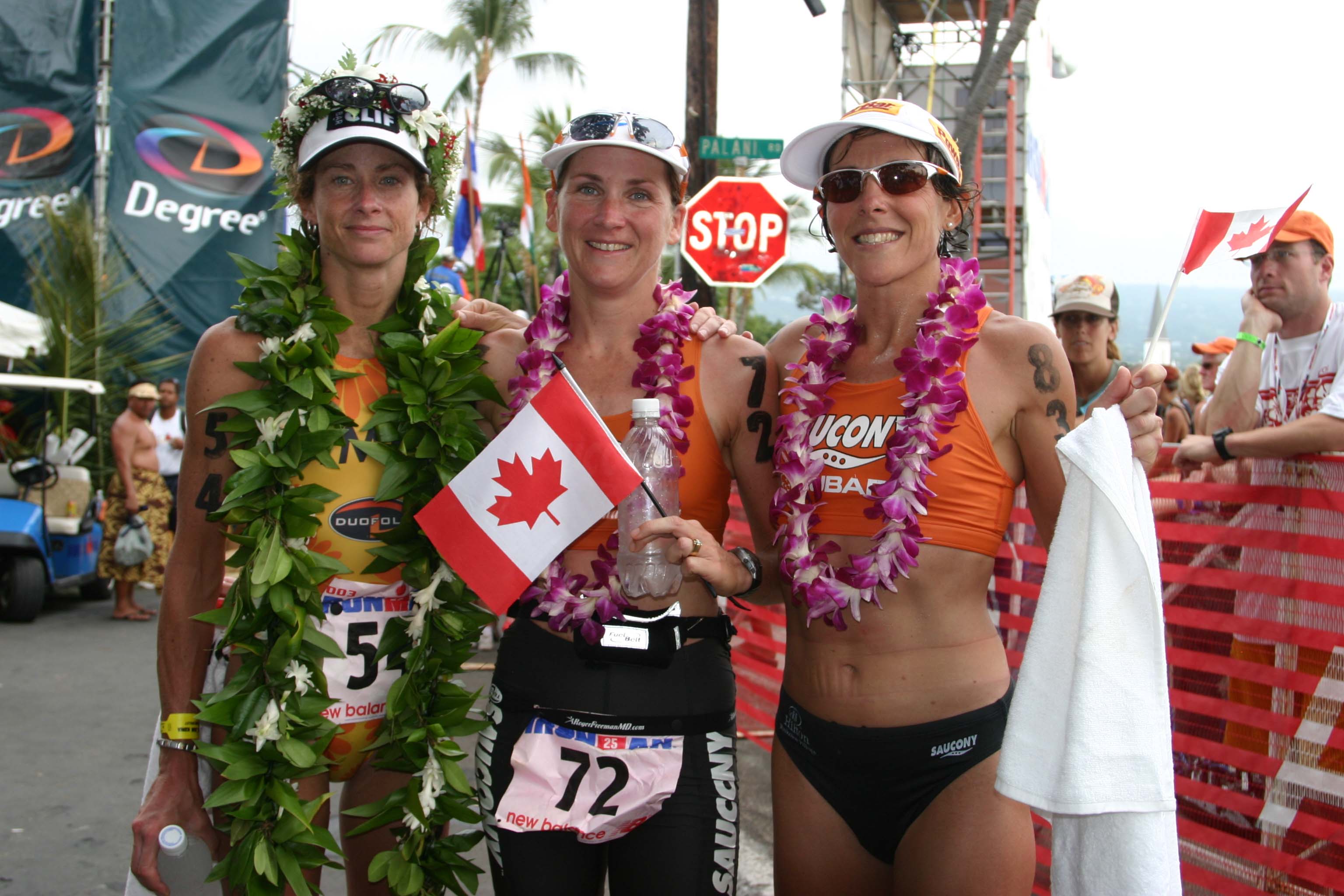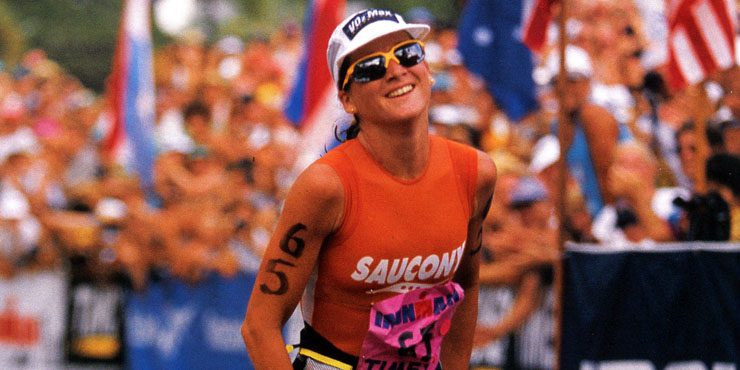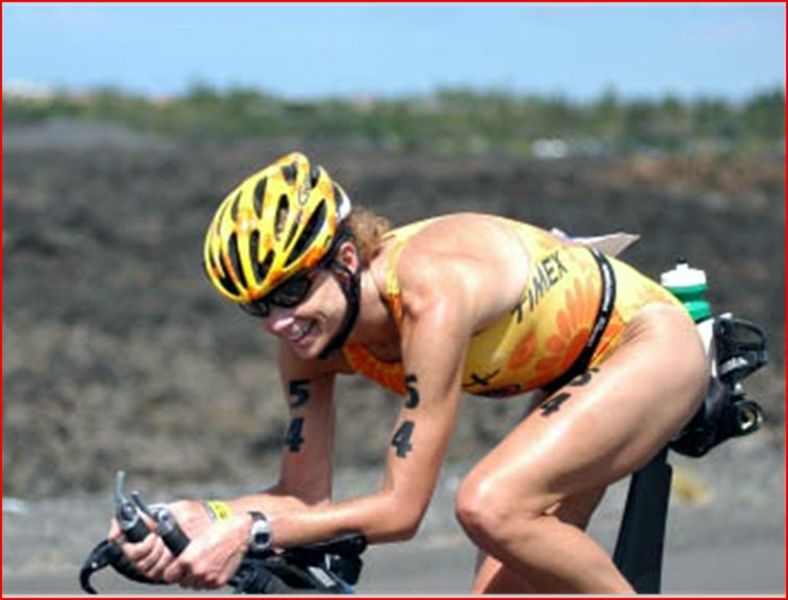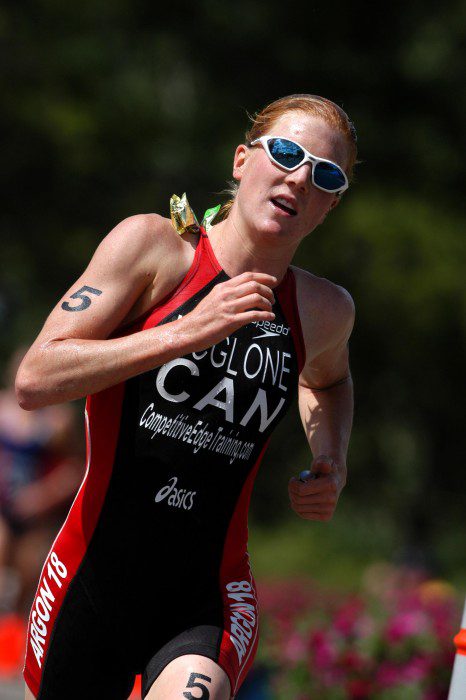More than a hockey nation: Canadian excellence at the Ironman World Championship
Canada has a long history of top performances in Kona
 Photo by:
Mark Oleksyn
Photo by:
Mark Oleksyn
When most people think of Canadian sports, they think of ice hockey, or perhaps alpine skiing. For most triathlon is hardly their first thought. But, once you take a few seconds to reflect, you realize just how closely tied Canada is to the world wide progression of triathlon.
Ironman Canada, in Penticton, was one of the first five Ironman races in the world in the early 80s. Canadian Les McDonald was the man who led triathlon into the Sydney Olympic Games as the first president. That very same 2000 Olympics was won by none other then a young unknown Canadian named Simon Whitfield. Ontario’s Graham and Sue Fraser created the largest triathlon participation series in the world with their start-up Royal Lepage Triathlon Series in the 1980s, and hosted the first of Canada’s nine World Triathlon Championships in Muskoka in 1992 The Frasers would also create the nearly dozen Ironman races that sprung up across through the early 2000s through the creation of Ironman North American.
Related: Hilary Brown – the first Canadian woman to finish the Ironman World Championship
With the 2022 Ironman World Championship back on Hawaii’s Big Island, and more athletes racing than anytime in history, it is time to take a look at Canada’s impact on the historic race. While there were no Canadian’s racing in the first few years, it wasn’t long till the same attraction that pulled triathletes from around the world, impacted Canada. Age groupers were the first to enter the Hawaii Ironman (click on the link above to read about the first Canadian woman to finish the Ironman, Hilary Brown), but in 1983 twin sisters from Quebec, Canada dominated the race. In both 1983 and 1984 Sylvianne Puntous and her twin sister Patricia were the first two pro women across the line. The twins helped put Canada on the map, just as ABC TV was starting to produce race coverage of the event. Between 1983 and 1989, Sylviane would win twice and be runner up an additional three times. Always close behind, twin sister Patricia helped put the two of them on magazine covers and inspire tens of thousands of Canadians to want to race on the big island.
Canada’s next superstar on the big Island was Ontario’s Julie Anne White. Julie Anne finished in the top 10 four times and finished second in 1992. As has been the case for virtually all of the Canadian women who have excelled in Kona, Julie Anne’s strength was her ability to run fast across for the marathon across the hot lava. Virtually every Canadian who has hit the podium in Kona has been better known for their marathon running than either of the first two sports. The 1992 World Triathlon Championships in Muskoka featured three of Canada’s next generation athletes. Lori Bowden, Heather Fuhr and Lisa Bentley (pictured above at the 2003 race in Kona) all raced in the 1,500 m swim/ 40km bike/ 10km run at the race in Muskoka. When it was decided two years later to allow drafting at the 2000 Sydney Olympics, all three women (and Peter Reid) moved away from a dream of the Olympic Games to focus on Ironman racing. All four athletes were top of the sport on the bike and run, but their average swim abilities would be too large a stumbling block at the shorter distance. Les McDonald’s Olympic gift to the world, was the exact stimulus for the four top Canadians (and many others) to move to the longer distance racing.

Alberta’s Heather Fuhr was the next of the superstars to excel in Kona. By 1993, Fuhr was top ten in the pro women’s ranks in Kona and would finish top ten in Hawaii an incredible nine times. Fuhr’s pinnacle day was in 1997 when she ran her way to the overall win and a silver in 2004. The most successful of the Canadian women in Kona was Ontario’s Lori Bowden. The low-key Bowden won Hawaii twice and was on the podium a staggering seven straight years (from 1996 to 2003). Bowden was then married to Quebec’s Peter Reid and, in 2003, the couple were the first, and still only, married couple to win the Hawaii Ironman on the same day.

Peter Reid was a world class short course triathlete, but once his coach Rach Frey convinced him to focus on longer-distance racing, he won two more Kona’s and was on the podium seven times between 1998 and 2005. Until Lionel Sanders came along, Peter Reid held all of the fastest Kona times by Canadian men. While Sanders has had two Ironman World Championship silver medals (in Kona in 2017 and in St. George this past year) his 8:04 is the fastest a Canadian man has ever gone in Hawaii. Reid and Sanders are the only two Canadian men to ever make a podium in Hawaii, while British Columbia’s Brent McMahon is the only other Canadian man to have a top-10 in Hawaii with his ninth in 2015.
The Canadian women have certainly had their share of success in Hawaii, with thirteen different Canadian women having at least one top-10 in Kona in their careers. The top ten rankings list includes: Heather Fuhr (9), Lori Bowden (8), Sylvianne Puntous (5), Lisa Bentley (5), Julie Anne White (4), Patricia Puntous (2), Isabelle Gagnon (2), Samantha McGlone (2), and single top tens for Heather Wurtele, Tereeza Macel, Jill Savege, Melissa Spooner and Angela Naeth. Naeth is the current Canadian record holder in Hawaii with her 8:57:57. Both Jill Savage and Sam McGlone also represented Canada at the Athens 2004 Olympic Games. Along with Brent MdMahon (two-time Olympian) three Canadians have been to both the Olympic Games and had a top ten Kona finish.

Ontario’s Lisa Bentley was incredibly consistent in Hawaii with five top tens and a bronze medal in 2006. Bentley was so tough, that she had to be pulled off the course when her appendix burst and got out of the hospital two days later to walk down the aisle with her now husband David Cracknell. 2004 Olympian McGlone took silver in her 2007 Ironman World Championship (and Ironman) debut, and also finished 6th in 2009.
During the late 90s, one could argue that outside of the Germans, Canada was the next strongest nation in Kona. In 1998, Canada had four women (Lori Bowden second, Melisa Spooner fourth, Heather Fuhr, fifth and Isabelle Gagnon, seventh) and one man (Peter Reid, who won) all finishing in the top ten. Imagine if that happened this week – five Canadians in the top ten in Kona. (Since there are only two Canadian pros in the race – Lionel Sanders and Jen Annett – duplicating that 1998 Canadian performance won’t be happening this year.)
The early years in Hawaii belonged to the Americans, and the last decade to the Germans and Swiss. Canada and Australia were the two big players in the sport during the late 90s and early 2000s. Through the 40+ years of Kona racing, Canadian age group athletes have also taken their fair share of hardware, with the now deceased Les McDonald having won his age category five times in the decade he raced there.
So, when you are watching this week’s Ironman World Championship, know that many Canucks have helped set the pace at one of the world’s most prestigious races.
Barrie Shepley was the coach of the Canadian team at the 2000 Olympics. He has been a CBC commentator at many Olympic Games. We reviewed his new book Chasing Greatness: Stories of Passion and Perseverance in Sport and Life in the Sept. issue of Triathlon Magazine Canada.
